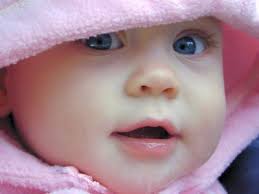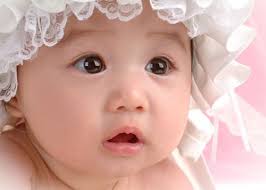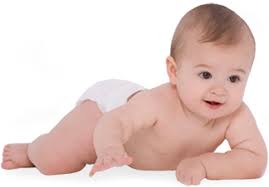High
levels of water hardness in the home may be linked to the development of eczema
early in life, according to a new study led by King's College London.
Eczema affects around a fifth of children in the UK. Skin barrier impairment and dry skin are thought to be triggers of eczema in early life, partly through genetic predisposition. Environmental factors may also contribute to the breakdown of the skin barrier, including water hardness and chlorine in household water. In the UK, domestic water tends to be harder in the south compared to the north, and the prevalence of eczema follows the same gradient.
 Previous studies in the UK, Spain and Japan have shown associations between
domestic water hardness and the risk of eczema in schoolchildren. However, the
link between water hardness and eczema has not been studied in early infancy.
The latest study examined the link between water hardness and chlorine
concentrations in household water, damage to the skin's natural barrier and
eczema in infancy.
Researchers recruited 1,300 three-month old infants from families across the UK
taking part in the EAT study and gathered data on levels of calcium carbonate
(i.e. water hardness) and chlorine in their household water from local water
suppliers.
Previous studies in the UK, Spain and Japan have shown associations between
domestic water hardness and the risk of eczema in schoolchildren. However, the
link between water hardness and eczema has not been studied in early infancy.
The latest study examined the link between water hardness and chlorine
concentrations in household water, damage to the skin's natural barrier and
eczema in infancy.
Researchers recruited 1,300 three-month old infants from families across the UK
taking part in the EAT study and gathered data on levels of calcium carbonate
(i.e. water hardness) and chlorine in their household water from local water
suppliers.
 The infants were checked for atopic dermatitis (childhood eczema) and their
skin's barrier function was assessed by measuring transepidermal water loss
(TEWL) on the skin of an unaffected forearm.
Infants were also screened for mutations in the filaggrin (FLG) gene, which
codes for a key skin barrier protein. Mutations in the FLG gene result in an
impaired skin barrier, which is thought to allow allergens to penetrate the
skin and predispose the body towards an allergic response.
The infants were checked for atopic dermatitis (childhood eczema) and their
skin's barrier function was assessed by measuring transepidermal water loss
(TEWL) on the skin of an unaffected forearm.
Infants were also screened for mutations in the filaggrin (FLG) gene, which
codes for a key skin barrier protein. Mutations in the FLG gene result in an
impaired skin barrier, which is thought to allow allergens to penetrate the
skin and predispose the body towards an allergic response.
 Information on the use of a water softener in the home, frequency of bathing
and use of moisturizers and bath products was also collected.
Living in a hard water area was associated with an up to 87% increased risk of
eczema at three months of age, independent of domestic water chlorine content.
The risk tended to be higher in children with mutations in the FLG skin barrier
gene, although these latter results were not statistically significant.
Information on the use of a water softener in the home, frequency of bathing
and use of moisturizers and bath products was also collected.
Living in a hard water area was associated with an up to 87% increased risk of
eczema at three months of age, independent of domestic water chlorine content.
The risk tended to be higher in children with mutations in the FLG skin barrier
gene, although these latter results were not statistically significant.
 Although the study attempted to account for potential confounding factors, such
as bathing frequency and the use of soaps and shampoos, skin care and hygiene
practices could have already changed by the time of enrolment into the study
due to the early emergence of eczema or dry skin.
The study also did not have information on children's exposure to swimming pools,
which contain much higher chlorine levels than domestic water and could have an
additional detrimental effect on skin barrier function and risk of eczema.
Although the study attempted to account for potential confounding factors, such
as bathing frequency and the use of soaps and shampoos, skin care and hygiene
practices could have already changed by the time of enrolment into the study
due to the early emergence of eczema or dry skin.
The study also did not have information on children's exposure to swimming pools,
which contain much higher chlorine levels than domestic water and could have an
additional detrimental effect on skin barrier function and risk of eczema.

The research team has recently received funding through a NIHR Career Development Award to Flohr to study the effect of water hardness on the neonatal skin in more detail. Preparations are underway to establish whether installing a device to lower water hardness in households around the time of birth can reduce the risk of an infant developing eczema; recruitment into this new study will commence later this year. ■
Eczema affects around a fifth of children in the UK. Skin barrier impairment and dry skin are thought to be triggers of eczema in early life, partly through genetic predisposition. Environmental factors may also contribute to the breakdown of the skin barrier, including water hardness and chlorine in household water. In the UK, domestic water tends to be harder in the south compared to the north, and the prevalence of eczema follows the same gradient.
The research team has recently received funding through a NIHR Career Development Award to Flohr to study the effect of water hardness on the neonatal skin in more detail. Preparations are underway to establish whether installing a device to lower water hardness in households around the time of birth can reduce the risk of an infant developing eczema; recruitment into this new study will commence later this year. ■
0 comments:
Post a Comment
Please insert your comments here